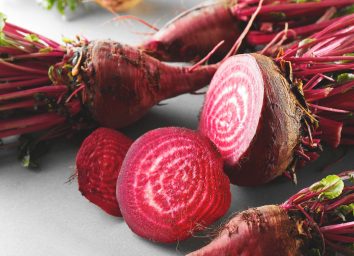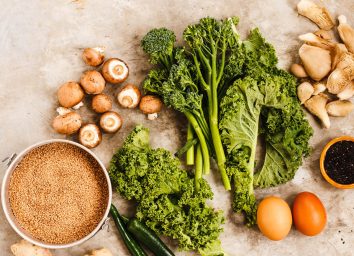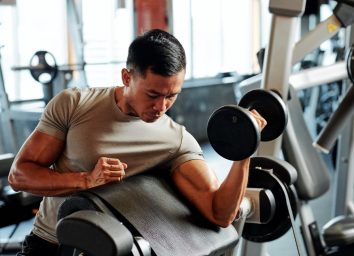Best Foods to Eat for Muscle and Strength
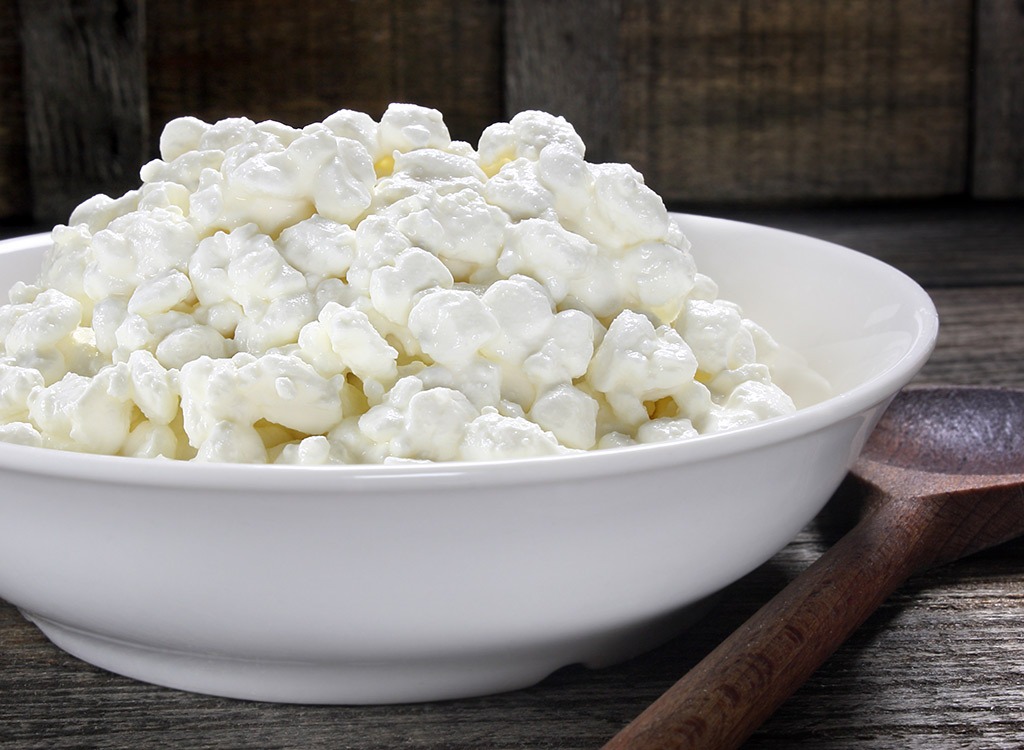
Don’t get distracted by this protein powder propaganda. You can get plenty of muscle-building nutrients by adding the right foods to your diet. These 11 basics are foundational elements for every meal of the day, ideal for boosting energy and speeding muscle recovery before and after the gym. (What you wear there is still up to you.)
Greek Yogurt
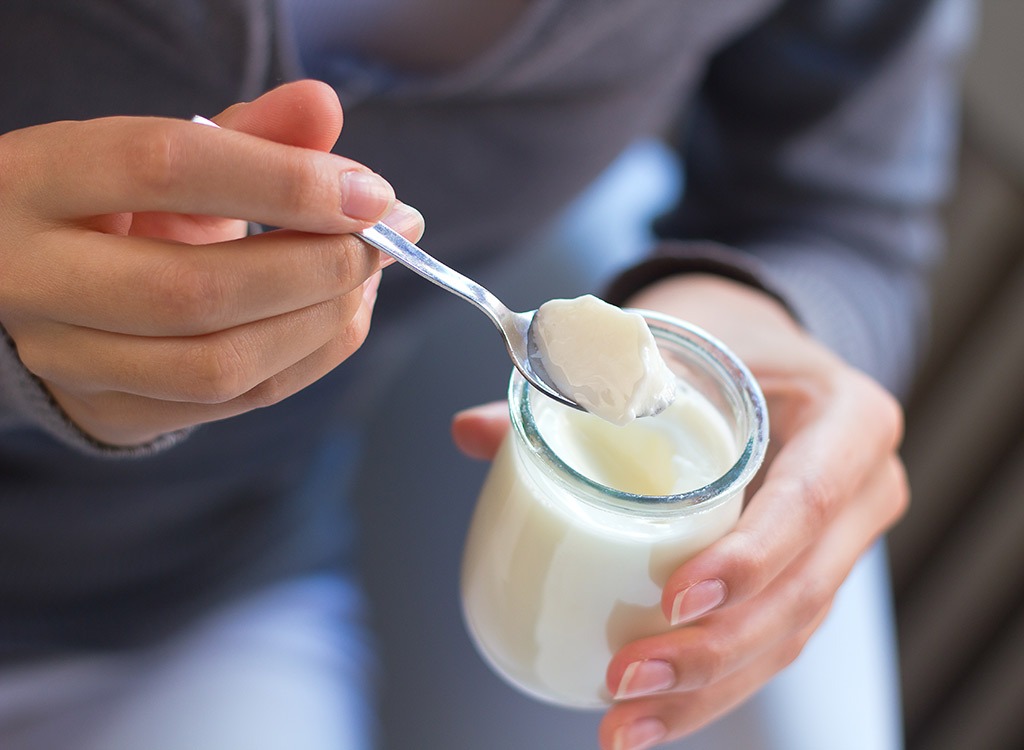
Packed with muscle-nourishing nutrients, Greek yogurt is the ideal workout partner. “It’s a good source of protein, calcium and vitamin D, which are good for muscles,” says Ilyse Schapiro, MS, RD, CDN, a registered dietitian with practices in New York and Connecticut. “Vitamin D is definitely important for your bones—you need strong and healthy bones to sustain muscles—and it impacts protein synthesis. People with low vitamin D levels have been shown to have decreased strength and greater muscle wasting.”
Skip the varieties with added fruit; they have too much sugar. Go for the plain, full-fat variety (it’s higher in nutrients than skim).
Beans
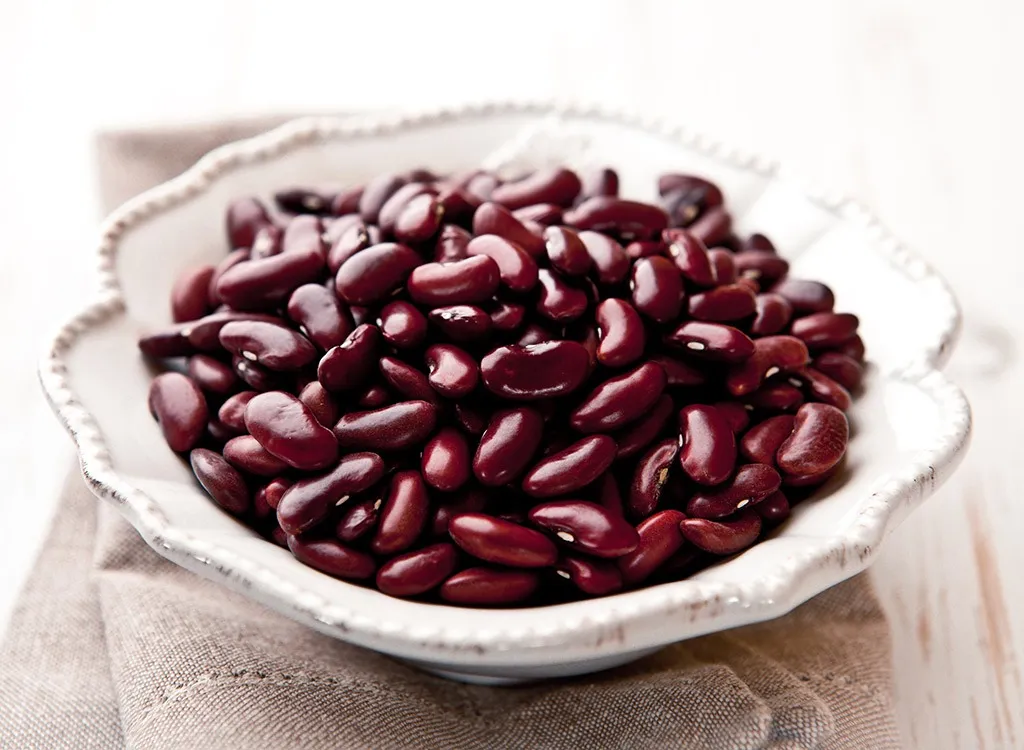
The simple bean is actually an advanced fat-burning, muscle-building machine. “Beans are a great source of protein that includes fiber,” says Leah Kaufman, MS, RD, CDN, CDE, a New York City-based registered dietitian. “That’s going to ensure your blood sugar doesn’t spike and will give you energy to build the muscle you want.”
One cup of black beans has 12 grams of protein and 9 grams of fiber; they’re also rich in folate, a B vitamin that stokes muscle growth, and copper, which strengthens tendons. On top of that, a Spanish study showed that consuming four weekly servings of beans or legumes accelerates weight loss.
Cottage Cheese
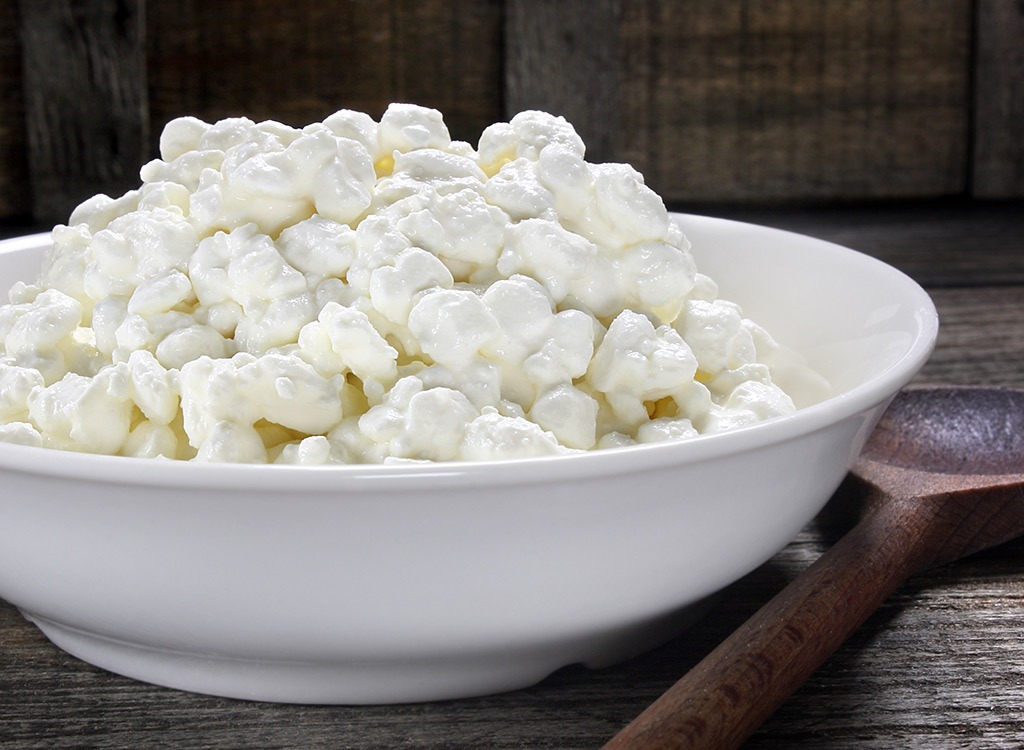
Turns out that the diet staple of 1970s housewives deserves a place on a musclehead’s plate. “It’s very rich in protein, and it’s perfect for muscle building and maintenance because it also contains calcium and vitamin B12,” says Schapiro, who advises you pick up the low-fat variety. Doubting this long time diet staple? A cup of low-fat CC has 163 calories and 28 grams of protein, as much as four eggs.
Chocolate Milk
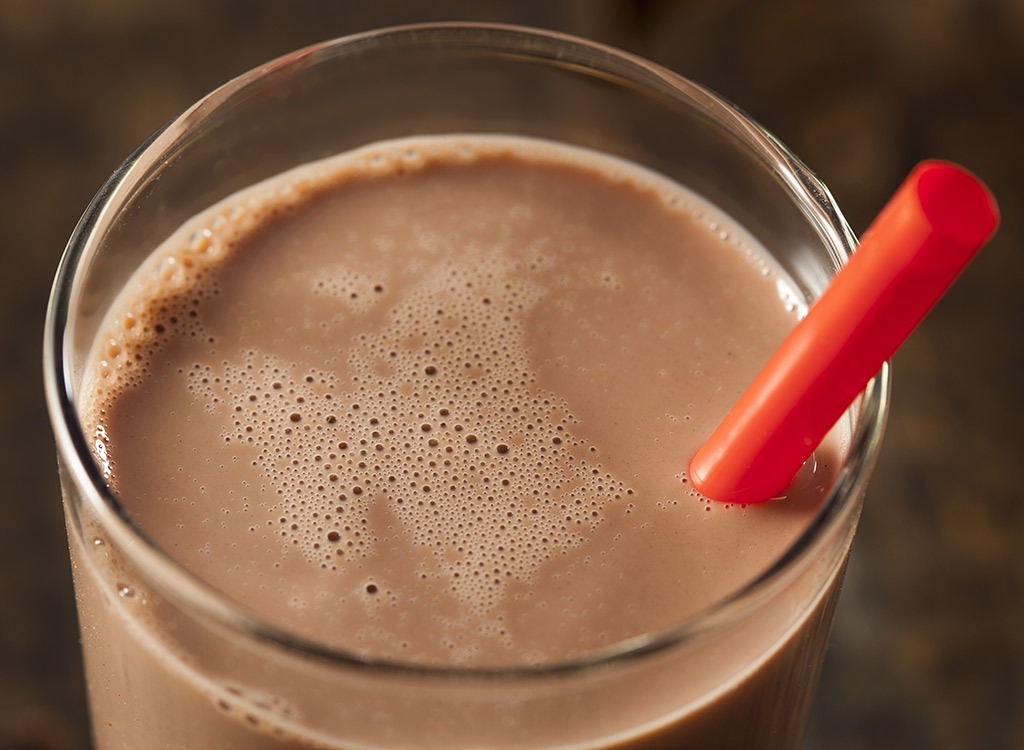
Add the kiddie concoction to your essential pre- and post-workout snacks. In a study published in Journal of the International Society of Sport Nutrition, subjects given chocolate milk high before riding stationary bikes were able to pedal 49 percent longer than cyclists given another carb-replacement beverage. Chocolate milk’s naturally occurring electrolytes keep you hydrated, and its sweetness speeds energy into muscles, which makes it equally good after your workout. “Chocolate milk is good for muscle recovery because you get protein, vitamin D and calcium from the milk, and that little bit of sugar from the chocolate to help refuel,” notes Schapiro.
Bananas
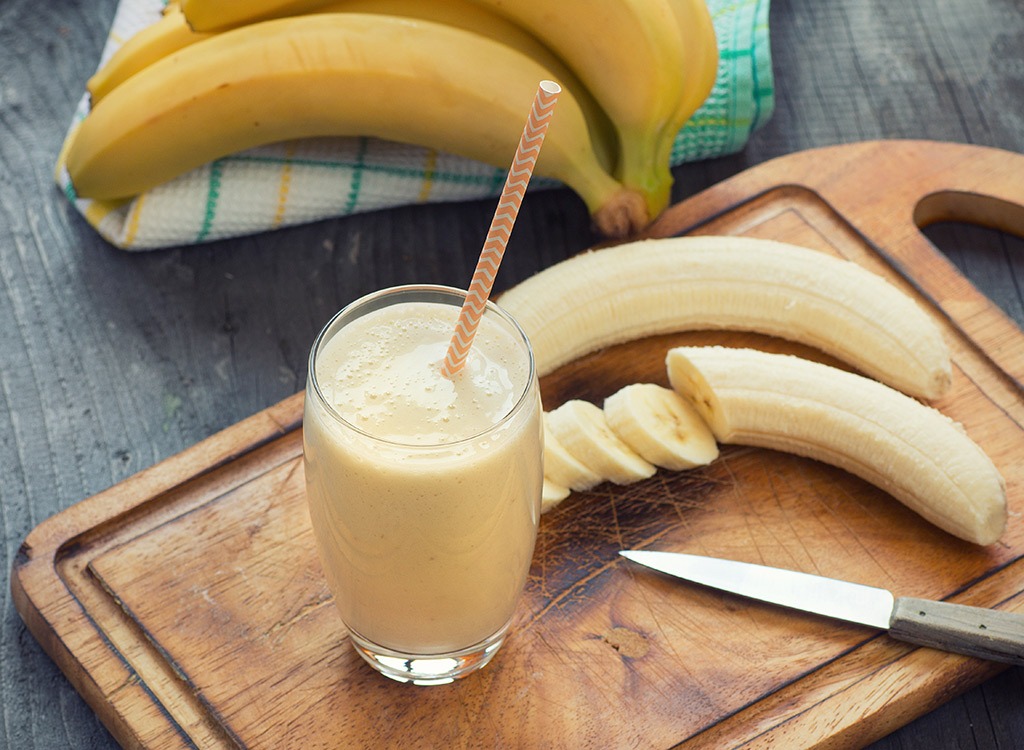
Bananas are an ideal source of fuel. They’re rich in glucose, a highly digestible sugar, which provides quick energy, and their high potassium content helps prevent muscle cramping during your workout. Each medium banana contains about 36 grams of good carbs: Their low glycemic index means carbs are slowly released into your body, preventing sugar crashes and spurring the process of muscle recovery. If you think you need something more substantial, get good fuel ideas from our guide to the best pre-workout snack for every workout.
Beets
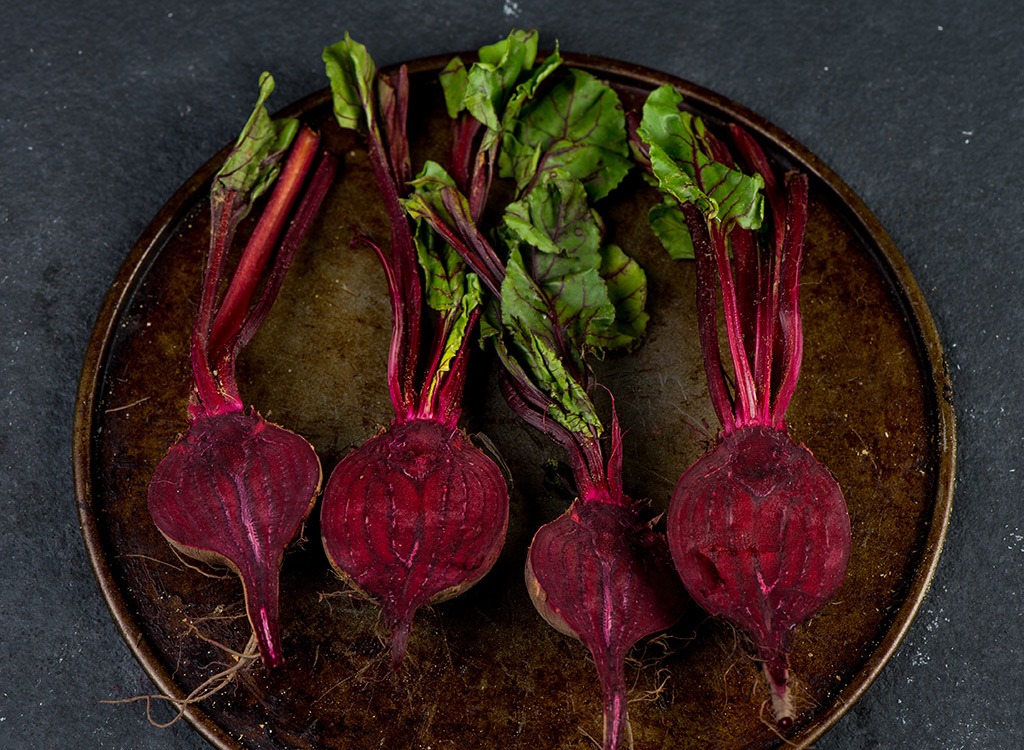
Yep, beets. A number of studies have shown that consuming beets can improve your athletic performance. Subjects who drank beet juice experienced a 38 percent increase in blood flow to muscles, particularly “fast twitch” muscles that affect bursts of speed and strength, a study conducted at Kansas State University showed.
Another study published in the Journal of the Academy of Nutrition and Dietetics found that runners who ate baked beets before a 5k ran five percent faster, a result attributed to the beets’ nitrates, a natural chemical that increases endurance and lowers blood pressure. Spinach and carrots are also high in the muscle-building compound.
Eggs
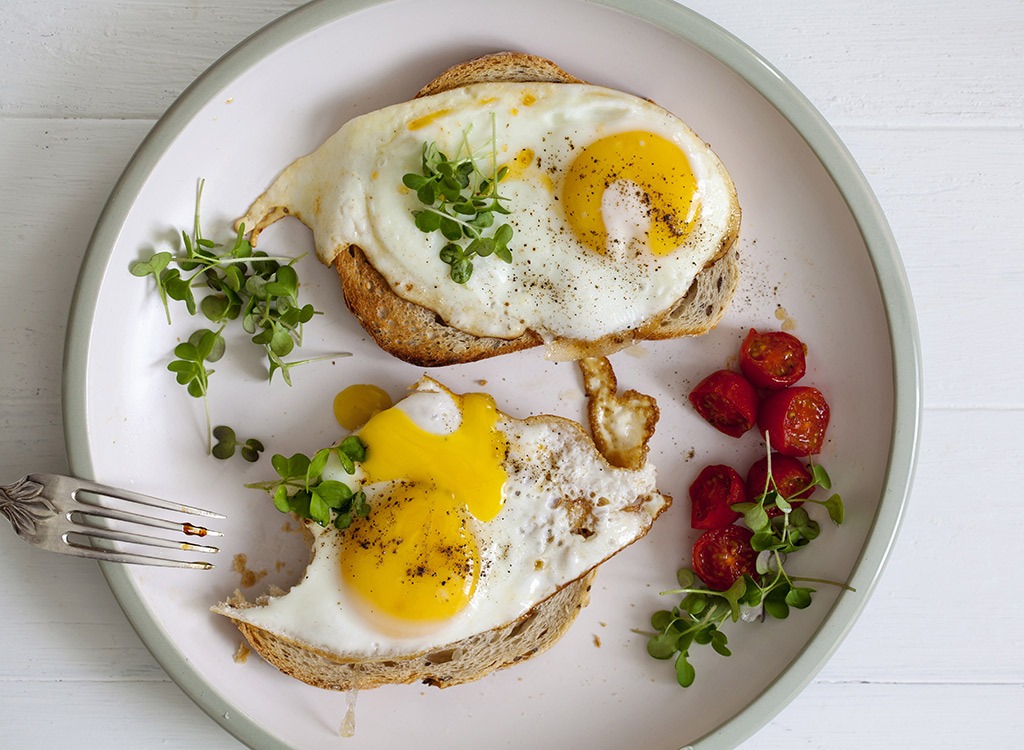
“My favorite source of protein is an egg,” says Kaufman, who notes that each contains seven grams of muscle-builder. “Depending on the workout and their goals, I usually tell my patients to have protein in increments of seven. If you’re doing a high-intensity workout, you should have 14 grams of protein. Two eggs are perfect.”
Almonds
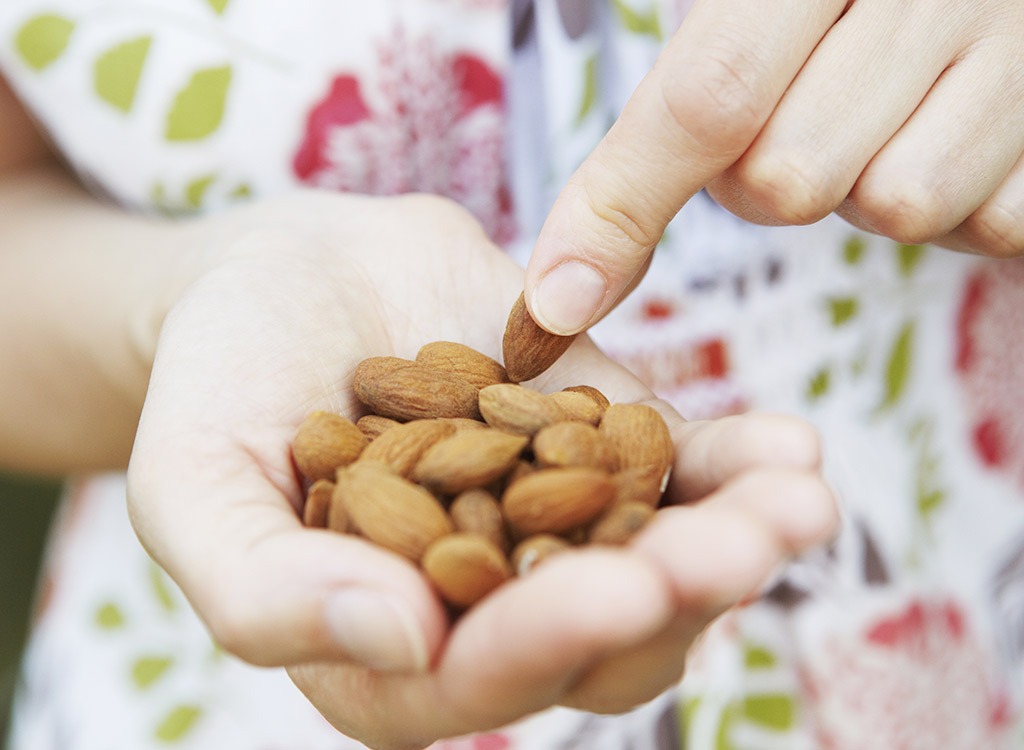
Nature’s magic bullets have been shown to have special fat-burning properties if you consume them before a workout: A study printed in The Journal of the International Society of Sports Nutrition found that the L-arginine in almonds can help you burn more fat and carbs in the gym. When it comes to muscle building, a quarter-cup of raw almonds has eight grams of protein and is high in magnesium, which boosts energy and endurance. “Almonds are great—you just need to watch the quantity,” says Kaufman. “I recommend eating 20 max. If you go over that, your body will be storing fat instead of building muscle.”
Chicken
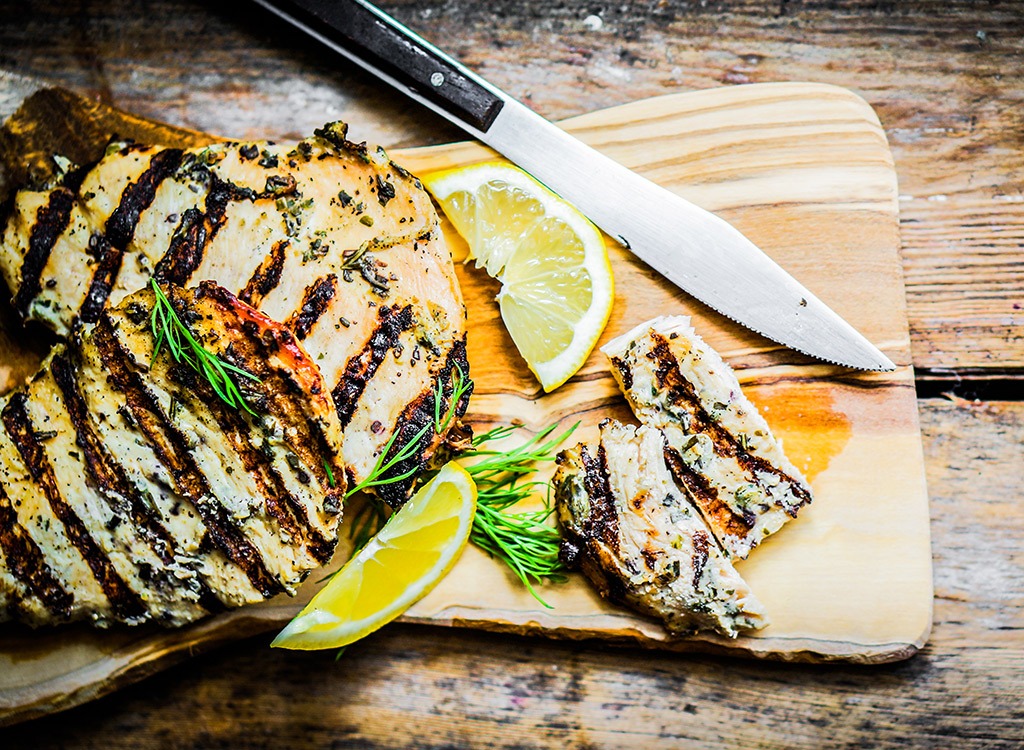
The muscle-builder’s staple maintains its status for a reason. Aside from being high in protein — 54 grams per six-ounce serving — chicken breast is also rich in leucine, an amino acid that’s key to muscle building because it increases protein synthesis. In studies at the University of Illinois, researchers fed one group of people meals containing 10 grams of leucine per day, and another group a lower-leucine diet. In two studies, the groups that ate high-leucine diets lost more weight and body fat — and maintained more lean body mass. According to the USDA, a six-ounce chicken breast contains about 4.4 grams of leucine per serving and 52 grams of protein.
Grass- Fed Beef
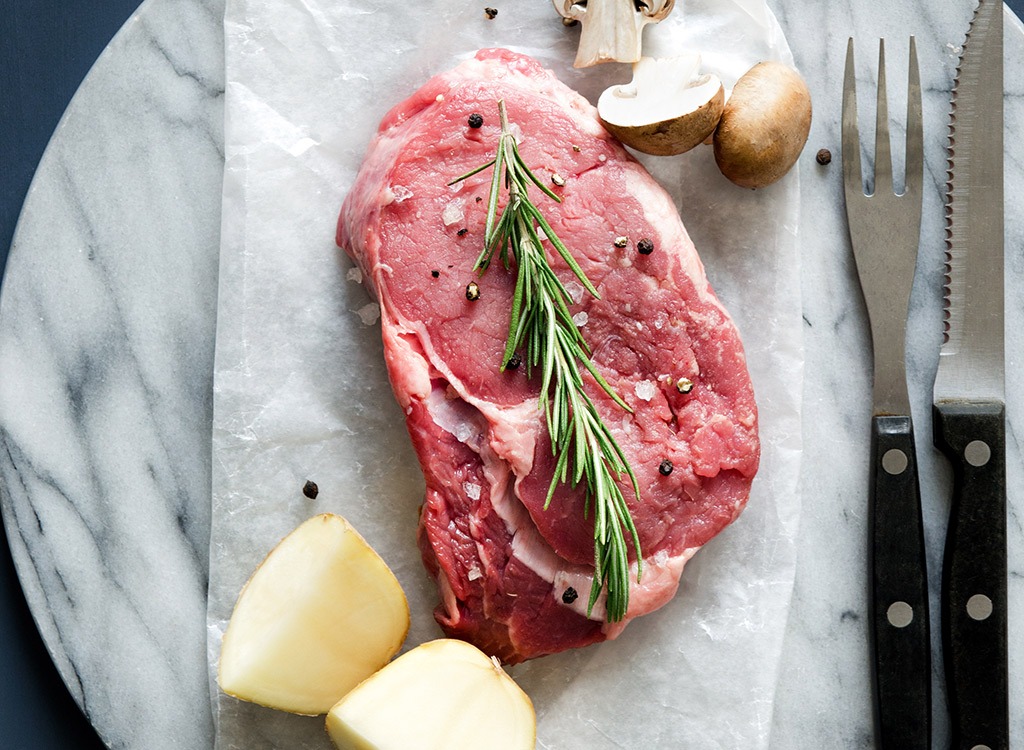
Grass-fed beef has the holy trifecta of muscle building: It’s the #1 food source of creatine, which increases muscle mass by speeding protein to muscles; it’s rich in CLA, an anti-inflammatory fatty acid; and it provides more than one-half the RDA of protein in a four-ounce serving. “It’s great for you—rich in iron, magnesium and B12, which you need to have for muscle building,” says Kaufman, who notes that she tells her patients who have a history of high cholesterol not to eat more than two servings of red meat per week.
Wild Salmon
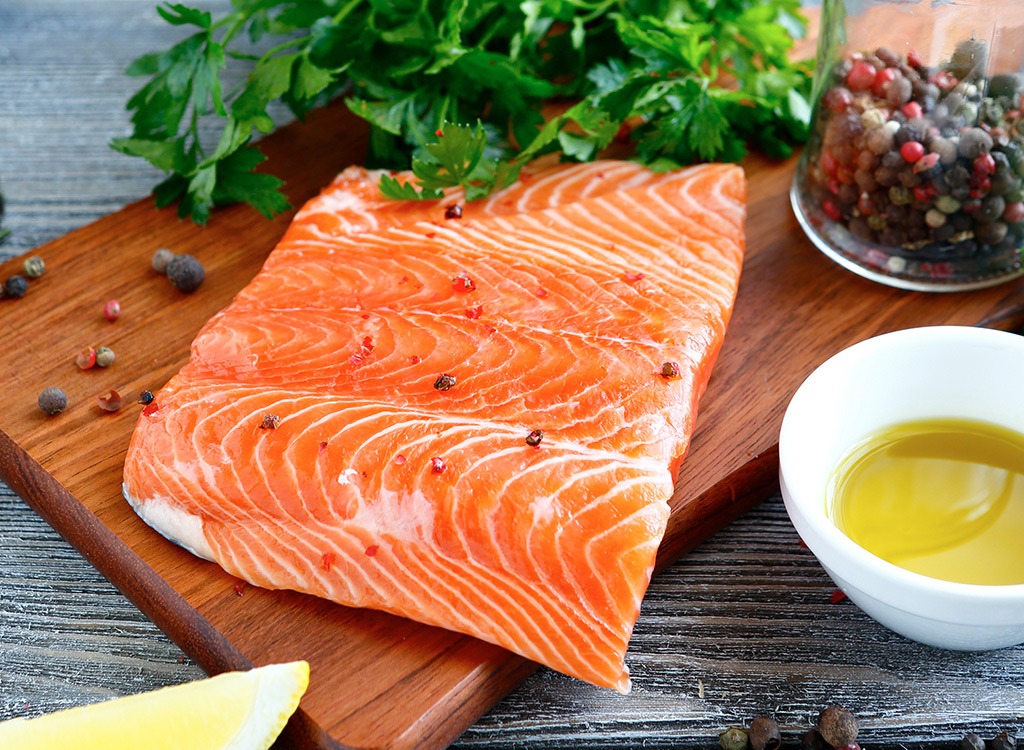
Wild salmon’s high protein content — 39 grams per serving — is supplemented by its heart-healthy, inflammation-busting, longevity-promoting omega-3 fatty acids. Just be sure you go wild. Farmed salmon, plumped up with fishmeal and high in PCBs (polychlorinated biphenyls, chemicals that cause endocrine disruption), must be thrown back in the refrigerator case. “There’s definitely a difference in taste between wild and farm-raised salmon,” says Kaufman.
“While the wild will be more expensive, it’s worth the difference to ensure it’s not raised on a farm, where there can be a lot of chemicals,” she adds. Another reason why it’s a smart purchase: A study published in the Annals of Internal Medicine showed that people with the highest blood levels of omega-3s lived two years longer, on average, than those with lower levels. More time to show off those guns.
